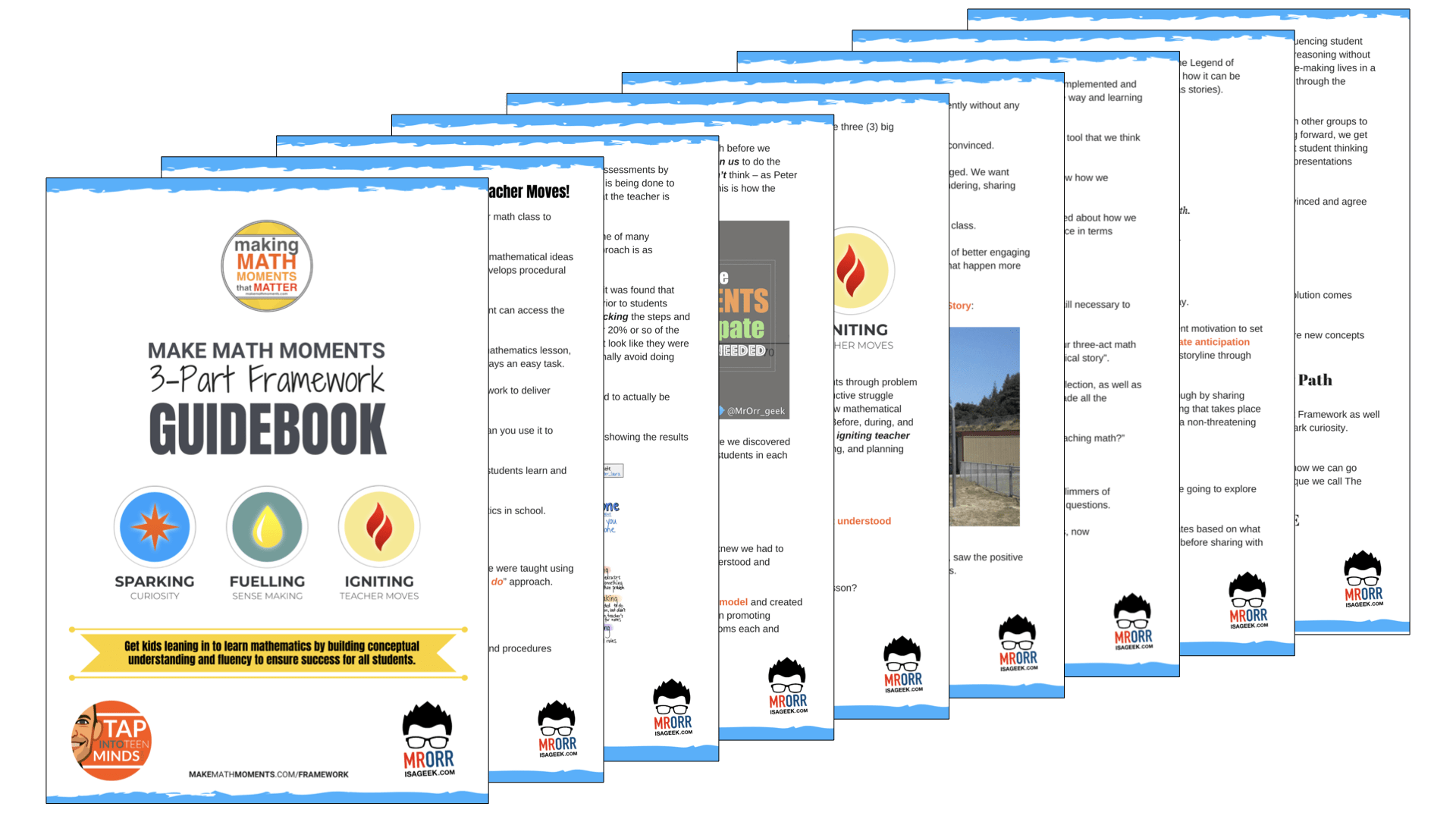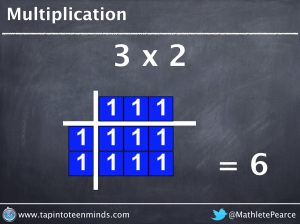Thanks to everyone who read and commented on a recent post that prompted discussion about memorizing multiplication tables and whether it hurt or helped students in math. Although I received some positive reaction, I also managed to become the most hated mathematics teacher in many minds.
In this post, I’d like to extend the conversation here to possibly better articulate my concerns for memorizing multiplication tables and math facts. I think we can all agree that students who know their math facts are usually in great shape regardless of how they managed to learn them. However, I choose to focus on those who don’t know their facts in an attempt to help uncover why that is. My fear is that many students who are believed to be good at math are simply better at memorizing, but not necessarily good at applying their knowledge. How can we help all students better understand the math that we hope they will be able to recall from memory over time?
For some of us, myself included, I was able to memorize numbers and facts using some strategies that I believe I picked up through my own personal experiences and upbringing. Regardless of whether what I could recall had any real meaning to me was irrelevant. At some point, I would either make connections on my own or simply not use the information stored in my head.
Chicken or the Egg?
So which must come first? Memorizing the facts like multiplication tables and gain understanding later, or gain a deep understanding of multiplicative thinking to find innovative ways to problem solve solutions and build the skill to recall times tables later?
While my thoughts and beliefs can change with each passing day, I think having a balance between both is essential to help all learners succeed in mathematics. What is probably most important is how we go about doing it.
WANT TO LEARN HOW TO TEACH THROUGH TASK?

Share With Your Learning Community:

About Kyle Pearce
I’m Kyle Pearce and I am a former high school math teacher. I’m now the K-12 Mathematics Consultant with the Greater Essex County District School Board, where I uncover creative ways to spark curiosity and fuel sense making in mathematics. Read more.
Read More From The Blog


Oh my goodness. You’ve got a great blog. I appreciate hearing your thoughts about math education and what a math classroom my look like in the near future–maybe even today! Keep it coming!
Peter,
I appreciate the feedback! With all the great work being done around the world to help change the way we teach mathematics, I’m excited to be a part of it!